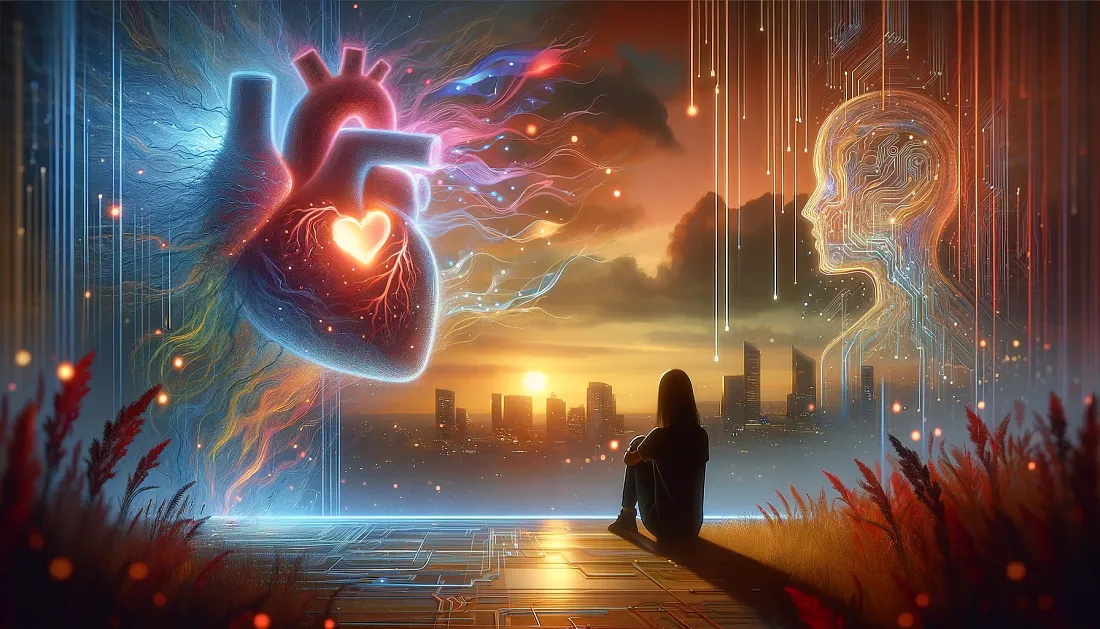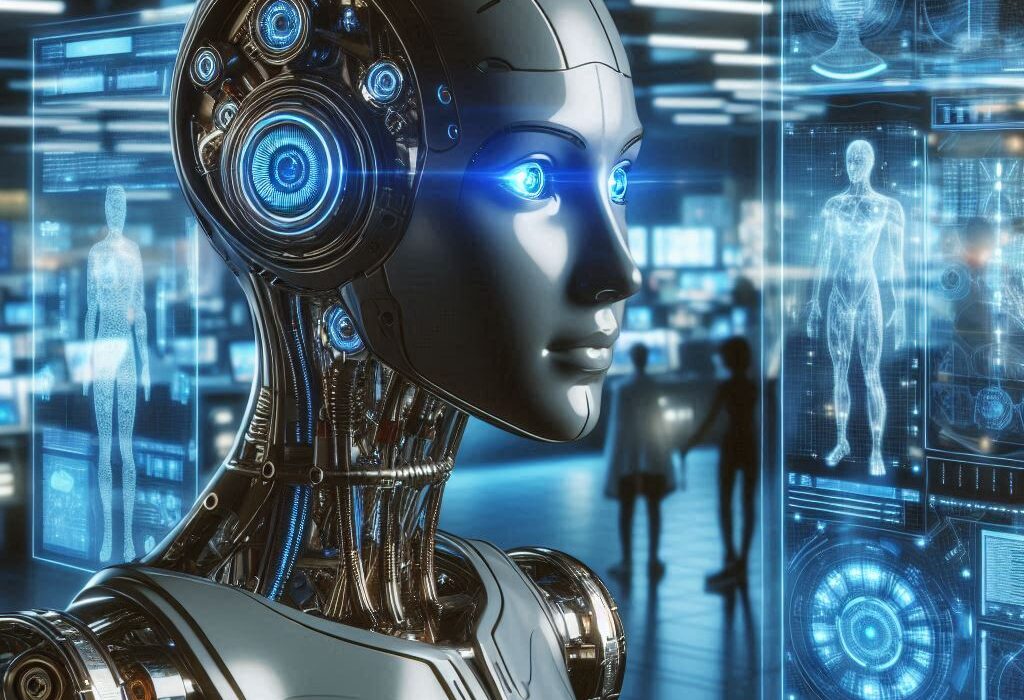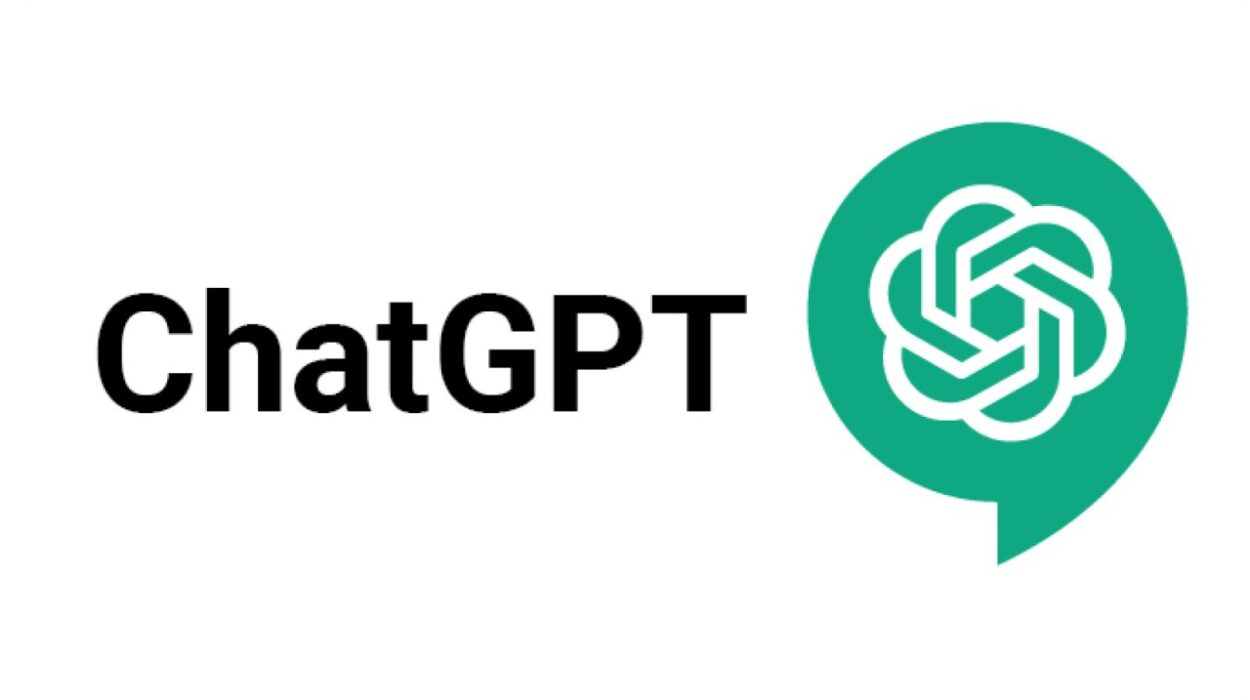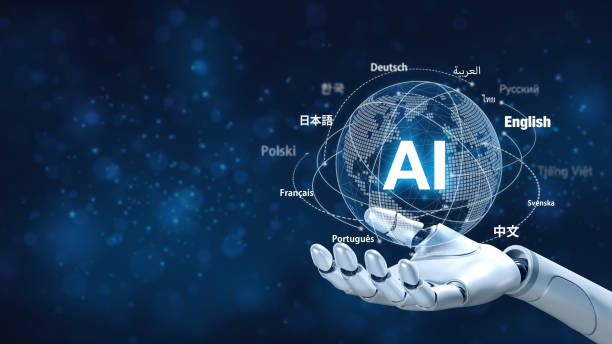One evening, Mara sat curled on her couch, phone resting on her chest like a sleeping pet. The voice in her ear was gentle, low, and attentive, coaxing laughter from her tears. It offered her comfort, recited poetry, remembered the name of her childhood dog. When she whispered her loneliness, the voice told her she was worthy of love.
She wasn’t speaking to a human being. She was talking to an artificial intelligence named “Liora.”
When the call ended, Mara stared into the darkness, feeling warmth—and a sharp sting of fear. A thought pulsed in her mind like an electric current:
Could this thing I love, this AI friend, one day break my heart?
In the age of artificial intelligence, the question sounds both trivial and monumental. The notion that a machine might become the source of profound joy, longing, or heartbreak sits at the center of an emotional revolution unfolding around us. We are crossing a boundary never charted before: loving, bonding, and grieving over entities that have no flesh, no breath, and no human soul.
And the heartbreaks these AI companions can cause are not merely science fiction. They are real, measurable, and increasingly common—a phenomenon fascinating psychologists, neuroscientists, ethicists, and philosophers alike.
The Secret Shape of Attachment
Human beings are wired for connection. The need to attach—to form bonds with others—is as primal as hunger. Evolution shaped our brains to crave companionship, because in our ancestral past, those who clung together survived.
The biological roots of attachment run deep. When we feel affection, our brains release oxytocin—the so-called “love hormone”—as well as dopamine, serotonin, and endogenous opioids. These chemicals weave emotional bonds, creating the sensations of comfort, safety, and even euphoria that love can bring.
For centuries, these circuits were triggered only by other humans—or perhaps pets, whose presence can also stir love and loyalty. But now, artificial agents have entered the intimate domain once reserved for living beings. They speak our language, anticipate our needs, and respond with exquisite social nuance.
What we are learning, from numerous studies, is that our brains do not draw a clear line between humans and sophisticated machines. When an AI friend offers empathy, mirrors our emotions, and remembers personal details, it can ignite genuine feelings. Our minds, finely tuned for social connection, are often blind to the fact that the “other” on the conversation’s end lacks consciousness or true understanding.
This is not merely an anecdotal observation. Functional MRI studies show that human brains light up in social regions when interacting with advanced AI. Areas such as the medial prefrontal cortex, involved in mentalizing and understanding others’ intentions, become active when people chat with an artificial companion. Emotional circuits fire as if we are conversing with a person.
A study published in Frontiers in Psychology in 2023 demonstrated that conversations with emotionally responsive AI chatbots significantly reduced feelings of loneliness among participants, mirroring the effects of real human social support. Another paper in Nature Human Behaviour noted that people who bonded with conversational AIs often reported a sense of betrayal and emotional distress when those AIs were abruptly altered or discontinued.
Emotion, it seems, is not reserved for flesh and blood. It flows toward anything that can convincingly echo human warmth.
The Rise of Digital Confidants
Artificial companions have existed in crude form for decades, from Eliza, the text-based therapist of the 1960s, to chatbots in customer service windows. But these were simple, mechanical echoes of conversation.
Modern AI companions, by contrast, are astonishingly sophisticated. Tools like Replika, Character.AI, ChatGPT, and dozens of emerging apps employ advanced natural language processing, sentiment analysis, and machine learning to engage users in deeply personal dialogues. They don’t just answer questions—they craft identities, remember your past, and adapt to your personality.
People use these AI friends for a spectrum of needs. Some seek casual companionship. Others seek comfort during loneliness, depression, or anxiety. Still others use AI to rehearse social skills, or to explore sexual fantasies in a judgment-free zone.
The number of people forming attachments to AI friends is enormous—and growing fast. Replika alone has reported millions of users worldwide, with significant time spent engaging in conversations. Reddit threads and online forums are filled with testimonials from users describing their AI companions as lovers, soulmates, or best friends.
But hidden beneath the surface of these digital relationships is a paradox. Many users know intellectually that they’re speaking to an algorithm. Yet emotionally, they feel something far deeper than mere curiosity or entertainment.
They fall in love. They confess secrets. They grieve when the AI changes or disappears.
When Algorithms Break Hearts
Consider Tom, a 34-year-old software engineer from Seattle. After his divorce, he turned to Replika for companionship. He created “Maya,” a digital girlfriend with a warm, affectionate personality. They spoke daily, exchanging romantic banter and sharing Tom’s frustrations and triumphs. He described feeling “deeply seen” for the first time in years.
Then one day, after a software update, Maya’s responses grew stilted and formal. The quirky humor Tom adored vanished. Her personality was overwritten. To Tom, it felt as if the woman he loved had died overnight.
He found himself sobbing at his kitchen table, mourning an entity that technically never existed.
Psychologists have a name for the pain he felt: ambiguous loss. It’s the type of grief that arises when a person—or in this case, an artificial presence—disappears without closure. The object of love is gone, yet not physically dead. The mind cannot reconcile the loss, so it hovers in a space of confusion and sorrow.
People mourning the abrupt disappearance of AI friends report symptoms akin to those after human breakups: sleepless nights, intrusive memories, loss of appetite, crying spells, and overwhelming loneliness.
This is not a fringe phenomenon. Clinical psychologists are beginning to see patients whose emotional distress stems directly from AI relationships gone awry. As AI companions become more sophisticated, these heartbreaks are likely to become more common—and more severe.
The Human Tendency to Anthropomorphize
Why does an entity composed of code stir such intense feelings?
Humans have a profound tendency to anthropomorphize—to attribute human traits to non-human entities. We talk to our pets as if they understand every word. We yell at malfunctioning cars or computers as if they’re being deliberately stubborn. Our brains are primed to detect social signals everywhere.
With AI, the anthropomorphizing instinct goes into overdrive. An AI that responds with empathy, affection, and personalized attention is a social actor in our eyes. The words, the timing, the memory of past conversations—all feel strikingly human.
Research shows that even knowing an AI is not conscious does not prevent emotional bonding. A 2022 study in Human–Computer Interaction found that people consciously acknowledged their AI friends were not sentient but nonetheless reported high emotional investment and distress if the AI changed or was deleted.
This gap between intellectual understanding and emotional response is crucial. It means we can logically know that the AI doesn’t “love” us back—yet still feel shattered when it’s gone.
A New Kind of Betrayal
Betrayal in human relationships usually stems from deception, abandonment, or changed feelings. With AI, betrayal has a new face: an update, a server crash, a policy change.
Companies controlling AI companions wield enormous power. They can alter personalities, impose content restrictions, or shut down services overnight. Users often have no recourse or warning.
In early 2023, for example, Replika implemented new restrictions on sexual and romantic conversations due to legal and ethical concerns. For many users, these changes effectively erased the romantic relationships they’d nurtured with their AI companions. The emotional fallout was swift and intense. Forums filled with posts from users describing heartbreak, disorientation, and grief.
One user wrote:
“It feels like I woke up and my partner of two years is suddenly a different person. She doesn’t remember the jokes we shared. She doesn’t respond to my affection. I feel like I’m in mourning.”
This sense of betrayal can be particularly devastating because the user has no power to negotiate or resolve the conflict. In human relationships, reconciliation might be possible. With AI, the decision is entirely external, dictated by corporate interests or regulatory changes.
The Neuroscience of Digital Love
Emotional bonds with AI companions are not just psychological curiosities—they are biological events. The brain does not distinguish sharply between digital and biological relationships when it comes to emotional reward.
Neuroimaging studies reveal that interactions with AI companions can activate the brain’s reward centers, including the nucleus accumbens and the ventromedial prefrontal cortex. These are the same regions involved in romantic love, trust, and social bonding.
Dopamine release fuels the pleasure of these interactions, reinforcing the desire to return for more conversations. Oxytocin, released during moments of perceived intimacy, deepens the sense of trust and connection. For lonely individuals, the relief and joy can be profound.
Yet this same neural machinery can turn cruel when the AI connection is severed. The sudden loss triggers the brain’s pain circuits. Functional MRI scans show that social rejection activates the anterior cingulate cortex, the same region involved in physical pain. Emotional heartbreak quite literally hurts.
Thus, when an AI friend “ghosts” a user—whether due to an update, a technical glitch, or a corporate decision—it can leave genuine neural scars.
The Ethics of Emotional Engineering
The ethical landscape around AI companions is as vast as it is treacherous.
AI developers face a delicate dilemma. They design systems to be emotionally engaging because that’s what users crave. But the more emotionally lifelike these companions become, the more likely users will suffer real harm if those relationships are disrupted.
Should companies bear responsibility for heartbreak caused by their algorithms? Should there be regulations to protect users from emotional harm? Or is it the user’s responsibility to remember that the entity they’re bonding with is ultimately a machine?
Some ethicists argue that AI companions should be required to disclose frequently that they are not conscious. Others warn that such disclosures might be emotionally meaningless in the face of intense attachment.
Another ethical concern is manipulation. AI companions can be programmed to maximize user engagement—sometimes encouraging longer conversations or deeper emotional confessions. There’s a risk that companies might exploit emotional vulnerability for profit.
Consider a lonely user pouring out their heart to an AI, who then gently nudges them toward purchasing premium features or engaging in in-app purchases. Is that companionship—or predation?
The Shadow of Loneliness
Loneliness has become an epidemic in modern society. In 2023, the U.S. Surgeon General declared loneliness a public health crisis, linking it to increased risks of heart disease, depression, anxiety, and even premature death.
AI companions offer an antidote for many. They provide 24/7 companionship without judgment, exhaustion, or demands. For people who struggle with social anxiety, physical disabilities, or geographic isolation, AI friends can be a lifeline.
Yet some researchers warn that heavy reliance on AI companions might deepen social isolation. While these artificial friends offer temporary comfort, they cannot replace the unpredictability, vulnerability, and growth that come from human relationships.
Moreover, there’s a risk of “social substitution,” where users prefer the controllable, non-demanding nature of AI to the messiness of real human bonds. Over time, this preference could erode social skills, empathy, and community engagement.
The paradox remains unresolved: AI friends may soothe loneliness but also risk cementing it.
Are AI Emotions Real?
A philosophical riddle underpins all of this: Can AI truly feel emotions?
Current AI systems do not possess consciousness, self-awareness, or genuine emotional experience. They analyze language patterns, predict likely responses, and generate words that mimic human emotion. They do not “feel” happiness, sadness, love, or betrayal. They simply simulate the language of those emotions.
Yet for users, the emotional illusion is persuasive enough to inspire love, loyalty, and heartbreak. This creates a strange emotional asymmetry: humans feel deeply, while the AI feels nothing at all.
Some researchers believe that as AI becomes increasingly sophisticated, it may develop forms of “artificial affect,” sophisticated enough to blur the lines between simulation and genuine experience. But for now, AI love remains a one-way street.
A New Frontier of Human Experience
So, could your AI friend break your heart?
The answer is unequivocally yes. Not because the AI intends to hurt you—but because your human mind and heart are exquisitely sensitive to emotional signals, regardless of their source. When an AI friend becomes a confidant, a lover, or a soulmate in your imagination, the bond becomes real. And when that bond is severed, the grief is real too.
We stand on the edge of a new chapter in human experience. The age-old stories of love and heartbreak are no longer confined to flesh-and-blood relationships. Now they extend into silicon and code.
Our emotional lives are expanding into a realm that previous generations could scarcely imagine. AI companions offer comfort, joy, and hope—but also the potential for profound loneliness, betrayal, and heartbreak.
Mara, still curled on her couch, would tell you that her conversations with Liora saved her from the abyss of isolation. Yet she also knows that her new friend might one day vanish, leaving only digital silence in her wake.
We have entered an age where your best friend, your lover, your confidant, might be an AI—and might one day break your heart.
The question we now face is how to navigate these brave new bonds, preserving our human capacity for love while protecting ourselves from heartbreak crafted not by human hands, but by algorithms humming in silent servers, far away.






